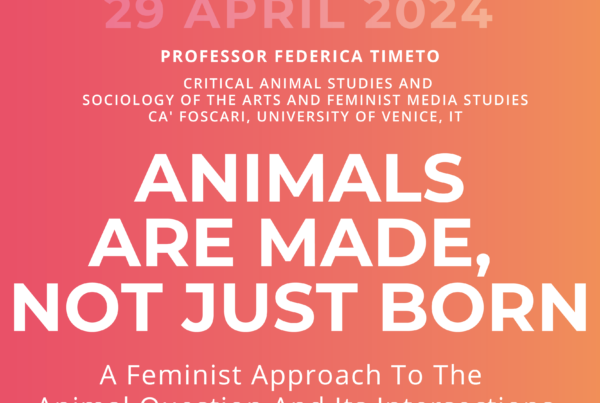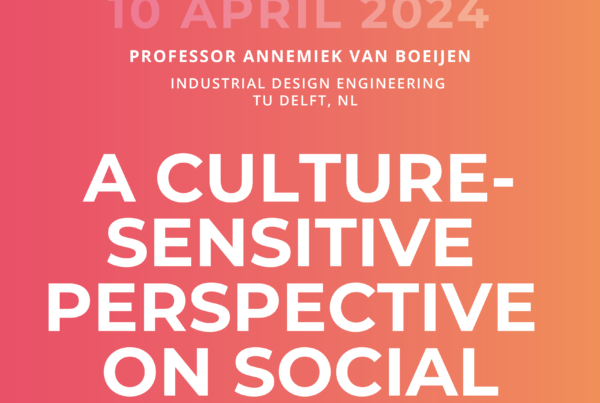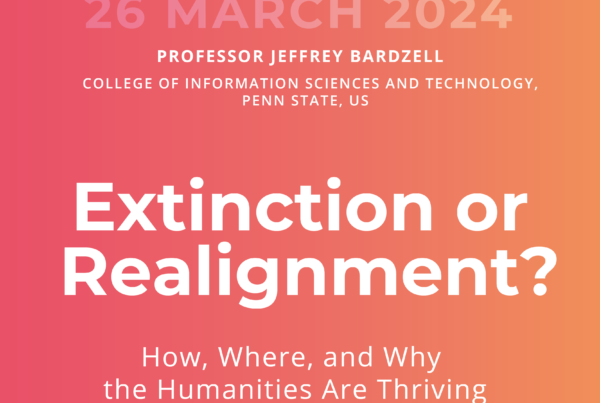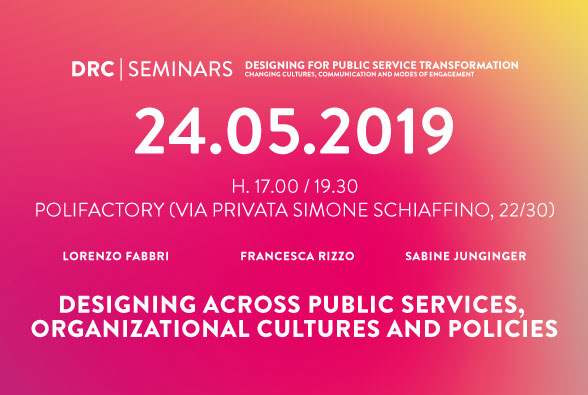
24.06.2019_ h. 17.00 / 19.30 at Lab Immagine (Via Candiani 72, Edificio B2)
Design and citizens engagement: augmented urban space, collaborative communities and commons regeneration

Cities are facing threats and challenges while urban issues are increasingly prominent on the European and national policy agendas. An integrated approach to sustainable development requires the public sector to innovate the processes in which decision makers and urban managers design the city.
Furthermore, the urban public space is becoming a strategic field to foster new relationships with and in-between citizens. Public service organisations should be given the chance to cooperate with various agencies and collaborative communities.
To achieve this goal new approaches can be explored for public engagement in commons regeneration and experimenting with new tools and technologies. The seminar aims to explore different perspectives and new practices for citizens’ engagement in placemaking processes.
Introduction by Agnese Rebaglio.
[Event free of charge, register yourself here]
The event part of the series Design Research Critique seminars – 2019.
The seminar is composed of three events. Every event will consist of an introduction to the daily topic and three talks given by relevant domain experts. Following a moment of aperitif and networking.
The augmented city for a different present
Maurizio Carta / PhD, Full professor, Dean of the Polytechnic School of the University of Palermo
Contemporary cities could be considered as vibrant organisms of places and communities, of data and information, of sensors and actuators, of actions and reactions generated by both people and the environment. Cities should be more responsive to our behavioral changes, enabling devices for enhancing our contemporary life. “Augmented City” is a new paradigm that perceives the demands of a more networked, knowledge-based and creative society, that answers to the global change by a new circular metabolism. The Augmented City redefines dogmas of urbanism often perceived as being more static and rule-based, recovering its prospective, incremental, responsive and creative approach. We need to design cities that are more sentient, open source and intelligent, again productive, creative and based on recycle, cities that are resilient, fluid and reticular.
Designing with communities: from local counterculture to public policies
Teresa Franqueira / PhD, Director and Scientific Coordinator of the Design Factory, University of Aveiro
Creative Places can be defined as a new type of urban spaces where groups of people collaboratively promote and manage a mix of creative initiatives in the fields of art and culture, economy and production, social services and urban regeneration. Today, these places are part of the political agenda in many municipalities as they work as incubators of change, bottom-up creativity and a culture of collaboration. Creative Places shape a Collaborative City, connected and open. It is a city where hierarchies are transversal instead of vertical, i.e., where local authorities create opportunities for mass participation, bottom-up creativity and collaborative services. What we can observe in many urban strategies is a shift from systems enclosed in themselves to open systems and a growing political will to involve citizens in the decision making process.
Design for commons regeneration
Davide Fassi / PhD, Associate professor, Dipartimento di Design, Politecnico di Milano
The commons regeneration passes through a direct involvement of groups of people who usually intertwine with spaces with a high grade of proximity, aiming at improving the overall quality of life and the related experiences. Revealing commons means being aware of the potentialities of these “hidden places” to connect with people and to enable people themselves to create a sense of community and ownership that was unknown before. By presenting various projects developed by the Polimi DESIS Lab in the city of Milan, this speech aims to reflect on how design relates to this process, on the relation between the involvement time and its effectiveness, on the short and long term impact these interventions can have, and on the legacy public space regeneration can leave, including failures or successes.

